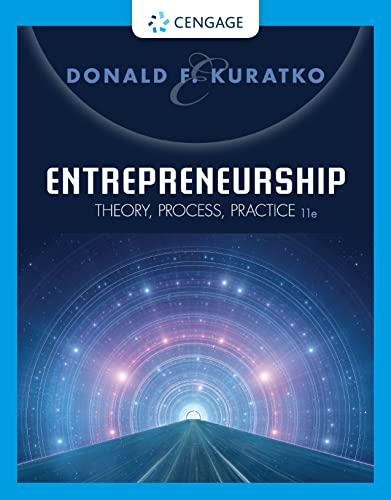Dennis Darby owns a small manufacturing firm that produces electronic components for use in helicopters. Most of
Question:
Dennis Darby owns a small manufacturing firm that produces electronic components for use in helicopters. Most of his business is a result of military and aircraft manufacturer contracts, although 11 percent of revenues come from firms that own or rent helicopters. The latter are typically large Fortune 500 companies or leasing/rental firms that work on a contractual basis for clients.
Dennis would like to increase his revenues from sales to private corporations that own their own helicopters. Specifically, he would like to do more business with oil companies that maintain helicopter fleets for ferrying people to and from oil rigs in the Gulf of Mexico and other offshore locations. Early this week, Dennis received a request from an oil company for 120 electronic components. He turned the order over to his chief estimator, who estimates that the fixed costs associated with producing these components will be $35,000, the unit variable cost will be $400, and the unit selling price will be $800.
Dennis will not accept any order on which the return on sales is less than 20 percent. Additionally, the estimator has told him that a $1,000 expense can be classified as either fixed or variable. Dennis intends to take this information and make a decision on whether to accept the contract from the oil company. He has to make a decision within the next three days.
QUESTIONS
1. What is the break-even point for this project? Will the company make money if it manufactures the components? Show your calculations.
2. If the project will be profitable, will it provide Dennis with the desired 20 percent return? Explain.
3. Of what value is break-even analysis to Dennis? Be complete in your answer.
Step by Step Answer:

Entrepreneurship Theory Process Practice
ISBN: 9780357033890
11th Edition
Authors: Donald F. Kuratko





